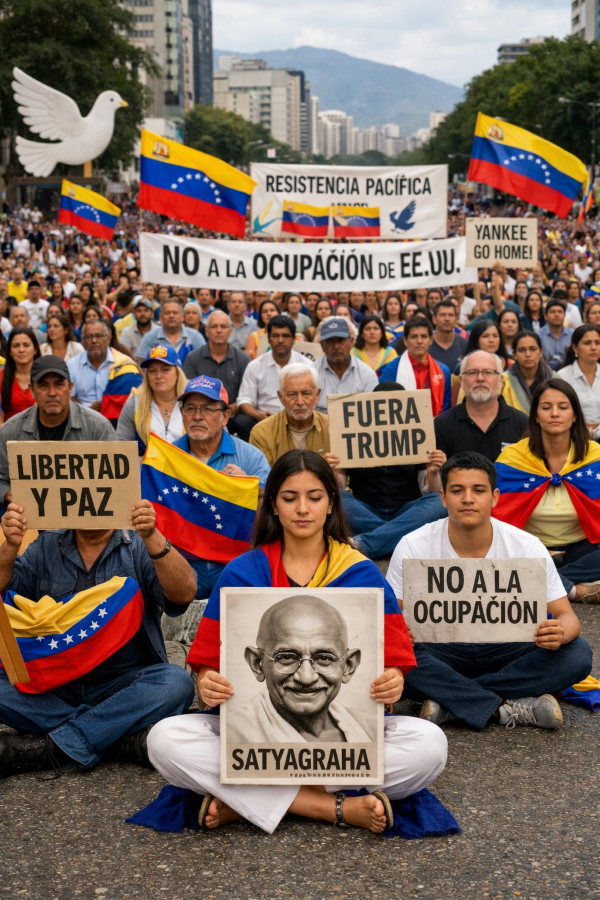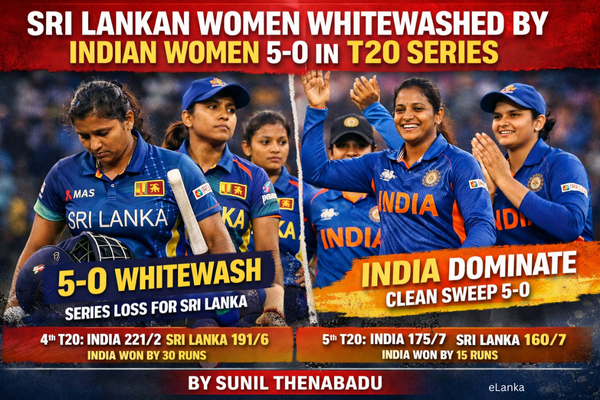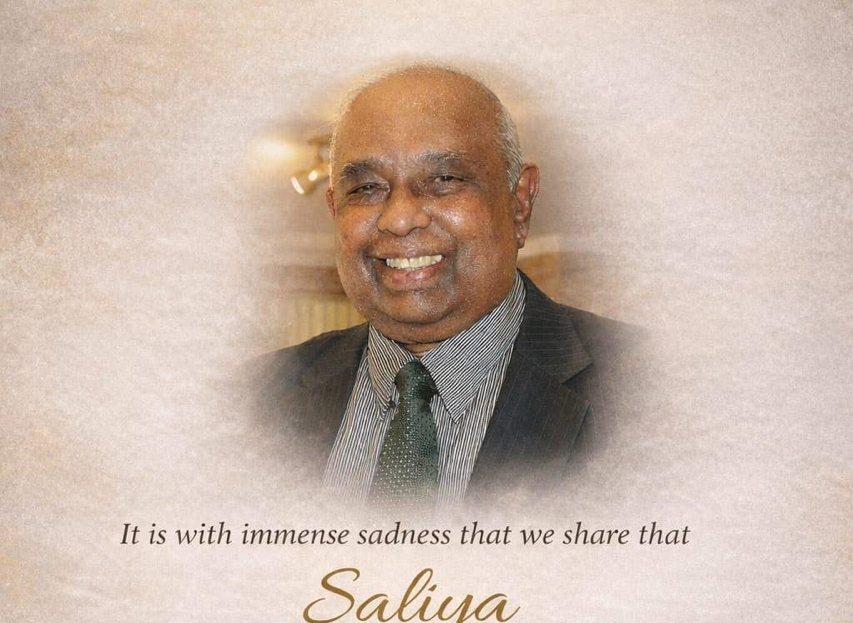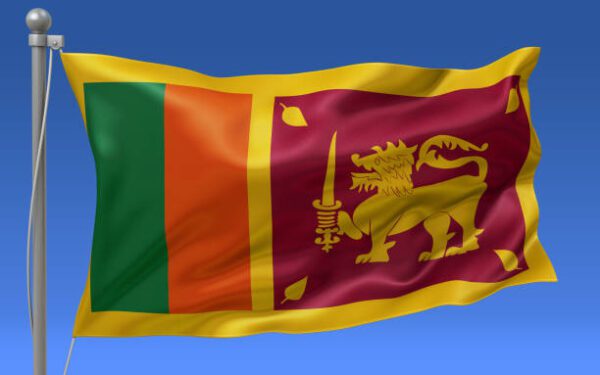How Lanka’s National anthem was amended due to superstition-By D.B.S.Jeyaraj
Source:Dailymirror
The insensitive, superstitious action affected the poet who lamented that his head has been cut off……committed suicide on April 5, 1962.
The charge was that the notations in Namo Namo Matha were unlucky and the cause of the country’s ills and misfortunes.
Sri Lanka is presently experiencing a tremendous economic crisis. Several knowledgeable persons describe the current period as the worst-ever phase in the Island nation’s 75-year post-Independence history. Many acts of omission and commission are being faulted for this calamity. Mercifully none have blamed Sri Lanka’s national anthem as the cause so far. At least not yet.
This however was not the situation in the late fifties and early sixties of the 20th century. The national anthem of Ceylon, as Sri Lanka was known then, was made the scapegoat for the country’s ills.
Superstition reigned supreme and the first line of the national anthem was amended without the consent of Ananda Samarakoon, who wrote the song. This irrationally insensitive and superstitious action drastically affected the poet who lamented that his head has been cut off. Ultimately, the sensitive author committed suicide on 5 April 1962.
An extremely troubling aspect in the controversial history of Sri Lanka’s national anthem was the tragic plight of its creator.
Poet Samarakoon was star-crossed in many ways. It is against this backdrop that I focus- with the aid of my earlier writings-on the tragic tale of Ananda Samarakoon this week.
Lanka Gandharva Sabha
When Ceylon gained full independence from the British, there was no approved indigenous National Anthem to be sung. The Lanka Gandharva Sabha was assigned the task of sanctioning a National Anthem.
A competition was organized and a panel formed by the Sabha entrusted the duty of selecting an appropriate anthem. This panel comprised SLB Kapukotuwa, Dr O.H. D. Wijesekera, Lionel Edirisinghe, Mudliyar E.A. Abeysekera, L.L.K. Gunatunga and P.B. Illangasinghe.
In a controversial decision, two of the panellists were declared winners. A song written by P.B. Illangasinghe and set to music by Lionel Edirisinghe was announced to be the new National Anthem.
The fact that a song submitted by two members of the selection panel had “won” the national song competition evoked widespread resentment and protests.
It was seen as blatantly unfair.
Meanwhile, another song was slowly beginning to capture the popular imagination of the people as a potential National Anthem. This was the famous Namo Namo Matha written by Ananda Samarakoon, who was a well-known painter as well as a poet.
The anthem has been beheaded. It has not only destroyed the song but also destroyed the life of the composer. I am frustrated and brokenhearted. It is a misfortune to live in a country where such things happen to a humble composer. Death would be preferable
George Wilfred
Ananda Samarakoon was born on January 13, 1911, in a small village, Liyanwela, near Watareka in the Padukka area. His parents, Samuel Samarakoon and Dominga Pieris were Christians. The son was christened George Wilfred. His full name was Egodahage George Wilfred Alwis Samarakoon.There was no Ananda in his name then and he was known as George Wilfred during his childhood and early twenties.
Young George Wilfred studied at Christian College, Kotte (Now Sri Jayewardenepura MMV). In 1934, he joined the staff of Christian College, as a teacher of art and music. Inspired by Rabindranath Tagore, George Wilfred joined Shantinekathan, Tagore’s School of Fine Arts in Bengal.
He joined Shantinekathan in 1936 and studied art under the famous Bengali artist Nanda Lal Bose, and music and singing under Shanti Devi Gosh.
He came back to Lanka in 1937 without completing his course and started teaching again.
Upon his return, George Wilfred became known as Ananda Samarakoon. In 1940, he joined the staff of Mahinda College, Galle.
Namo Namo Matha
The genesis of Namo Namo Matha is interesting.It was not written originally for the purpose of being a National Anthem. What happened was this. Ananda Samarakoon used to pay frequent trips to India even after his academic pursuit at Shanthiniketan had ended.
On one occasion he returned from India by air on his first-ever plane trip. Samarakoon looking down from the skies was enthralled and excited at the sight of his native land. He jotted down a few words and lines that came to mind immediately after landing.On October 20th 1940 he was at his ancestral residence in Padukka. Unable to sleep he tossed and turned in his bed. Suddenly he got up at about 10 p.m. and began writing a tribute to his motherland relying on the short notes written after his air trip from India.
Samarakoon wrote late into the night and the immortal Namo Namo Matha was born. He then took it to Mahinda College where he was teaching and taught it to students after setting it to music.
The song became popular and was included in a musical record in 1946. Being a fine singer himself Samarakoon recorded the song with his partner Swarna de Silva, the sister of famous flautist Dunstan de Silva.
The song was also included in a book of poems published by him. It was called Geetha Kumudini.
Sadly, Samarakoon was unable to reimburse the printing costs incurred by the printer R.K.W Siriwardena and handed over the copyright to him. Samarakoon was to regret this later when his creation came to be acknowledged as the National Anthem.
When the Gandarva Sabha conducted the competition to select a national song Samarakoon was away from the Island in India, but his wife and his brother had submitted Namo Namo Matha for the competition.
Though fully deserving it was overlooked and Sri Lanka Matha, Yasa Mahima by the Illangasinghe-Edirisinghe duo was selected.Samarakoon wrote late into the night and the immortal Namo Namo Matha was born. He then took it to Mahinda College where he was teaching and taught it to students after setting it to music.
The song became popular and was included in a musical record in 1946. Being a fine singer himself Samarakoon recorded the song with his partner Swarna de Silva, the sister of famous flautist Dunstan de Silva.
The song was also included in a book of poems published by him. It was called Geetha Kumudini.
Sadly, Samarakoon was unable to reimburse the printing costs incurred by the printer R.K.W Siriwardena and handed over the copyright to him. Samarakoon was to regret this later when his creation came to be acknowledged as the National Anthem.
When the Gandarva Sabha conducted the competition to select a national song Samarakoon was away from the Island in India, but his wife and his brother had submitted Namo Namo Matha for the competition.
Though fully deserving it was overlooked and Sri Lanka Matha, Yasa Mahima by the Illangasinghe-Edirisinghe duo was selected.It was therefore felt that the 10th line in the song was inappropriate and had to be changed. Samarakoon was then in India and returned home in mid-1951 after being summoned by Sir Edwin.
Samarakoon agreed to change the line. So the line Nawa Jeewana Damine was altered to Nawa Jeewana Demine Nithina Apa Pubudu Karan Matha with the wholehearted consent and approval of Ananda Samarakoon.
Sir E.A.P Wijeratne then presented a Cabinet paper in August 1951 recommending Namo Namo Matha as the National Anthem.In the search for scapegoats, certain elements …pounced upon the National Anthem. In a burst of superstitious or irrational frenzy, Namo Namo Matha was singled out as the cause for all the troubles afflicting the country under the Bandaranaike dispensation
It was unanimously approved by Cabinet and formally adopted on November 22, 1951. Four years after getting freedom, Namo Namo Matha was sung at Independence Day ceremonies as the official National Anthem on February 4, 1952.
Ensuring Uniformity
While Namo Namo Matha was now being sung as the official anthem there was no uniformity in the melody or manner of singing. Different choirs and singers were rendering it in different ways.
This was causing much confusion. So, the Government decided to appoint a committee to ensure that uniformity was ensured in rendering the National Anthem.
An eleven-member committee was appointed in 1953. Among its members were Ananda Samarakoon himself, Devar Suryasena and J.D.A. Perera.
This committee set out guidelines as to how the anthem should be sung and also defined the exact tune for it. The melody was a refined version of the original tune composed by Samarakoon. On June 24, 1954, the Cabinet of Sir John Kotelawela formally endorsed the tune and singing of the National Anthem.
The copyright ownership of Namo Namo Matha was formally acquired by the Government after the payment of Rupees 2,500 on June 24, 1954.
The money however did not go to Ananda Samarakoon as he had already transferred the copyright to Siriwardena the printing press owner who had first published the song in a book of poems.
Ensuring Uniformity
While Namo Namo Matha was now being sung as the official anthem there was no uniformity in the melody or manner of singing. Different choirs and singers were rendering it in different ways.
This was causing much confusion. So, the Government decided to appoint a committee to ensure that uniformity was ensured in rendering the National Anthem.
An eleven-member committee was appointed in 1953. Among its members were Ananda Samarakoon himself, Devar Suryasena and J.D.A. Perera.
This committee set out guidelines as to how the anthem should be sung and also defined the exact tune for it. The melody was a refined version of the original tune composed by Samarakoon. On June 24, 1954, the Cabinet of Sir John Kotelawela formally endorsed the tune and singing of the National Anthem.
The copyright ownership of Namo Namo Matha was formally acquired by the Government after the payment of Rupees 2,500 on June 24, 1954.
The money however did not go to Ananda Samarakoon as he had already transferred the copyright to Siriwardena the printing press owner who had first published the song in a book of poems.
Search for scapegoats
In the search for scapegoats, certain elements (With vested interests perhaps) pounced upon the National Anthem. In a burst of superstitious or irrational frenzy, Namo Namo Matha was singled out as the cause for all the troubles afflicting the country under the Bandaranaike dispensation. A vicious campaign was launched against Namo Namo Matha.
The charge was that the notations in Namo Namo Matha were unlucky and the cause of the country’s ills and misfortunes.
The letter ‘Na’ at the beginning was described as malefic. The inauspicious Ganaka or Gana at the beginning of the National Anthem had an ill effect on the country it was alleged.
A Gana is the placing of the first three syllables – how the long and short syllables occur. The opening words of the anthem ‘na-mo-na’ short-long-short constituted an unlucky gana it was stated.
As criticism mounted Ananda Samarakoon was constrained to defend himself against the charges.
He engaged in many newspaper debates and also spoke at public meetings in defence of Namo Namo Matha.
The onslaught against Namo Namo Matha destroyed Samarakoon’s peace of mind.
In September 1959, Prime Minister S.W.R.D Bandaranaike was assassinated. Elections to Parliament in March 1960 saw a hung Parliament.
Fresh elections were called. The Sri Lanka Freedom Party (SLFP) was swept to power in July 1960. Bandaranaike’s widow Sirima became Prime Minister. The new Govt took the campaign against Namo Namo Matha seriously.
Committee of Experts
The Home and Cultural Affairs Minister Maithripala Senanayake appointed a committee of experts to examine the issue and determine whether the National Anthem was the cause of the country’s troubles.
The committee recommended that the words Namo Namo Matha be changed to Sri Lanka Matha.
Ananda Samarakoon protested vehemently and opposed the proposed change.
The Government however went ahead and unilaterally amended the National Anthem from Namo Namo Matha to Sri Lanka Matha in February 1961. Samarakoon’s consent was not obtained.
Since copyright was now vested with the Government there was no legal remedy available to the poet to prevent this arbitrary action.
The act however had a distressing and debilitating effect on the poet. Thereafter Ananda Samarakoon was morose.
In the search for scapegoats, certain elements …pounced upon the National Anthem. In a burst of superstitious or irrational frenzy, Namo Namo Matha was singled out as the cause for all the troubles afflicting the country under the Bandaranaike dispensation
He was never the same again. On April 5th 1962 Ananda Samarakoon was found dead.
His door was broken open as he was not answering the knocks on his door. The inquest revealed that he had died of an overdose of sleeping tablets.
There was a letter on his desk to then Opposition leader Dudley Senanayake complaining of how his anthem had been mutilated.
Anthem has been Beheaded
A few days before his death, Samarakoon wrote a letter to the Timesman Column in the Times of Ceylon newspaper.
He wrote-
“The anthem has been beheaded. It has not only destroyed the song but also destroyed the life of the composer. I am frustrated and brokenhearted. It is a misfortune to live in a country where such things happen to a humble composer. Death would be preferable”.
This then was the tragic fate of the poet who authored the National Anthem of Sri Lanka. D.B.S.Jeyaraj can be reached at
dbsjeyaraj@yahoo.com






















